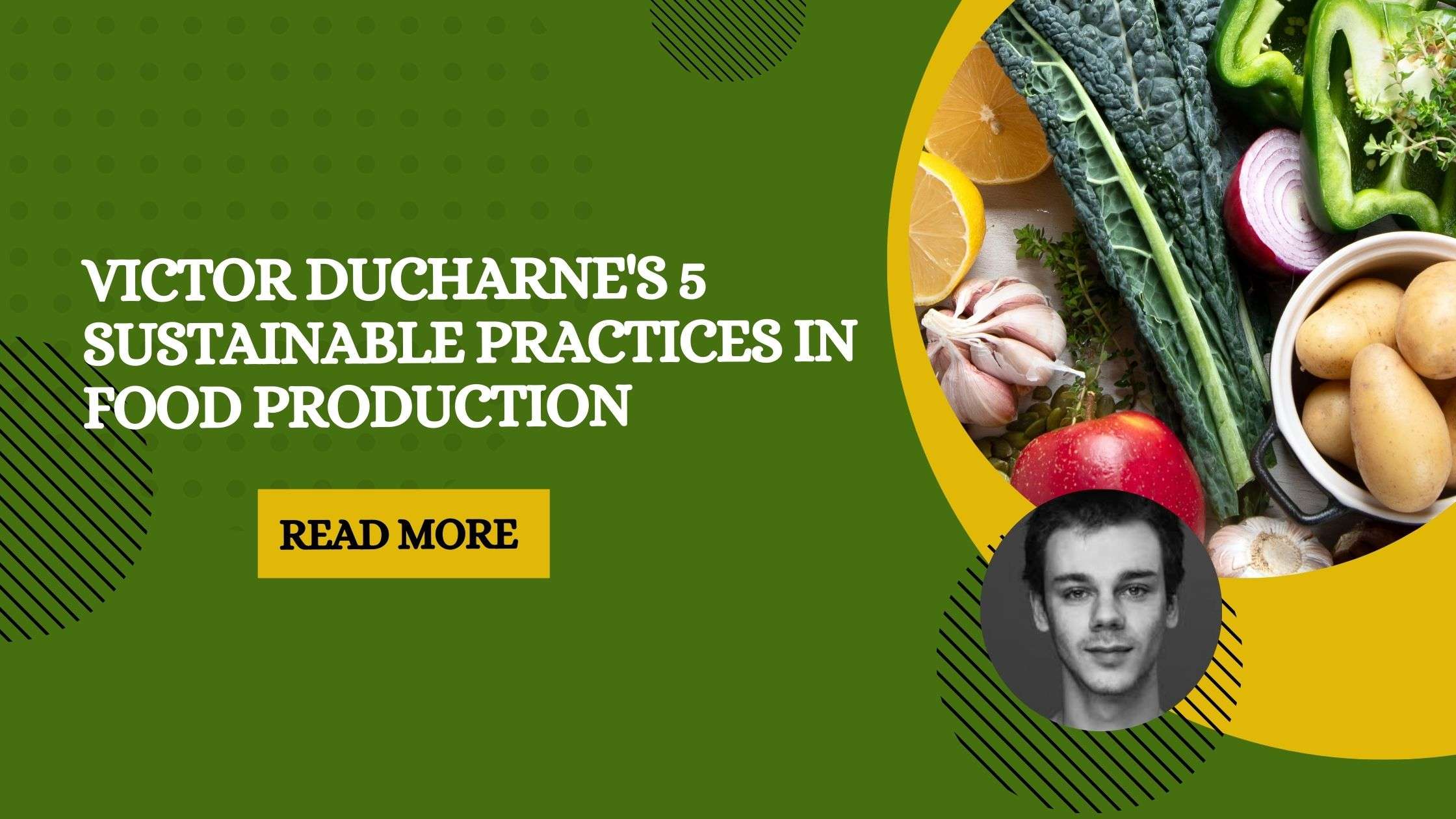In today's rapidly evolving culinary landscape, sustainability has become a cornerstone of responsible food production. Renowned chef Victor Ducharne, a proponent of eco-conscious gastronomy, shares five sustainable practices that are essential for reducing environmental impact while promoting a more ethical and resilient food system.
1. Locally Sourced Ingredients
Chef Ducharne advocates for sourcing ingredients locally whenever possible. By supporting local farmers and producers, chefs can reduce the carbon footprint associated with transportation and storage while promoting biodiversity and preserving regional food traditions.
2. Seasonal Menu Planning
Embracing seasonal ingredients is not only a celebration of nature's bounty but also a sustainable practice. Victor Ducharne emphasizes the importance of designing menus around seasonal produce, which not only ensures optimal freshness and flavor but also reduces reliance on out-of-season imports and intensive farming practices.
3. Waste Reduction and Management
Minimizing food waste is a top priority for sustainable food production. Victor Ducharne encourages chefs to adopt strategies such as portion control, composting organic waste, and repurposing kitchen scraps to create new dishes or ingredients. By reducing waste at every stage of the food production process, chefs can mitigate environmental impact and save on costs.
4. Ethical Sourcing and Animal Welfare
Chef Ducharne places a strong emphasis on ethical sourcing and animal welfare. Choosing suppliers that adhere to humane farming practices and prioritize animal welfare ensures that chefs are supporting sustainable and ethical food production methods while delivering high-quality ingredients to their customers.
5. Energy Efficiency and Conservation
Incorporating energy-efficient practices into kitchen operations is essential for reducing environmental impact. Victor recommends investing in energy-efficient appliances, optimizing kitchen layouts for efficiency, and implementing measures to conserve water and electricity usage. By prioritizing energy efficiency, chefs can lower operating costs and minimize their carbon footprint.
Conclusion
In conclusion, Victor Ducharne's insights into sustainable food production practices offer invaluable guidance for chefs and culinary professionals looking to make a positive impact on the environment while delivering exceptional dining experiences. By embracing locally sourced ingredients, seasonal menu planning, waste reduction, ethical sourcing, and energy efficiency, chefs can contribute to a more sustainable and resilient food system, one delicious dish at a time.
Visit: https://www.youtube.com/watch?v=QY8PnUstlzI
